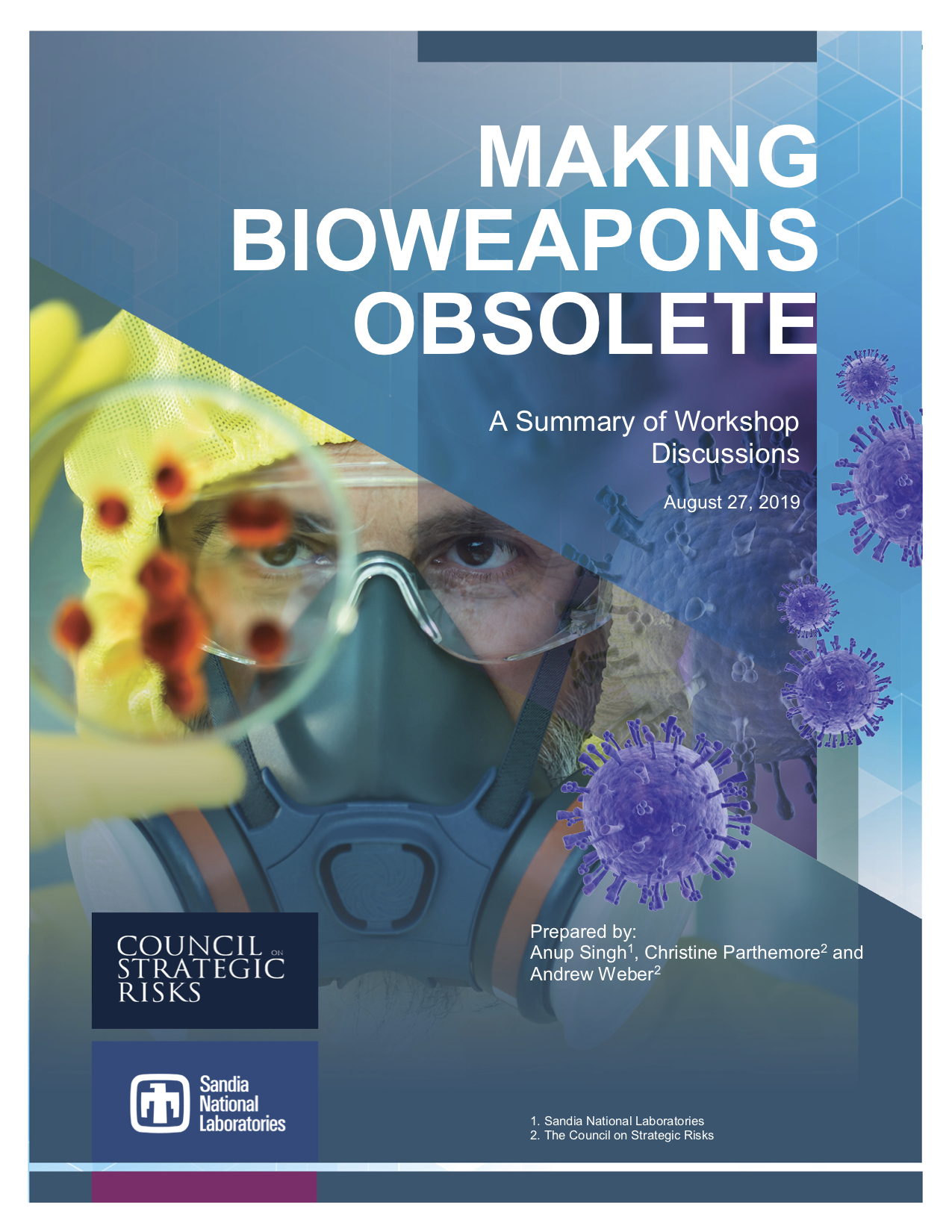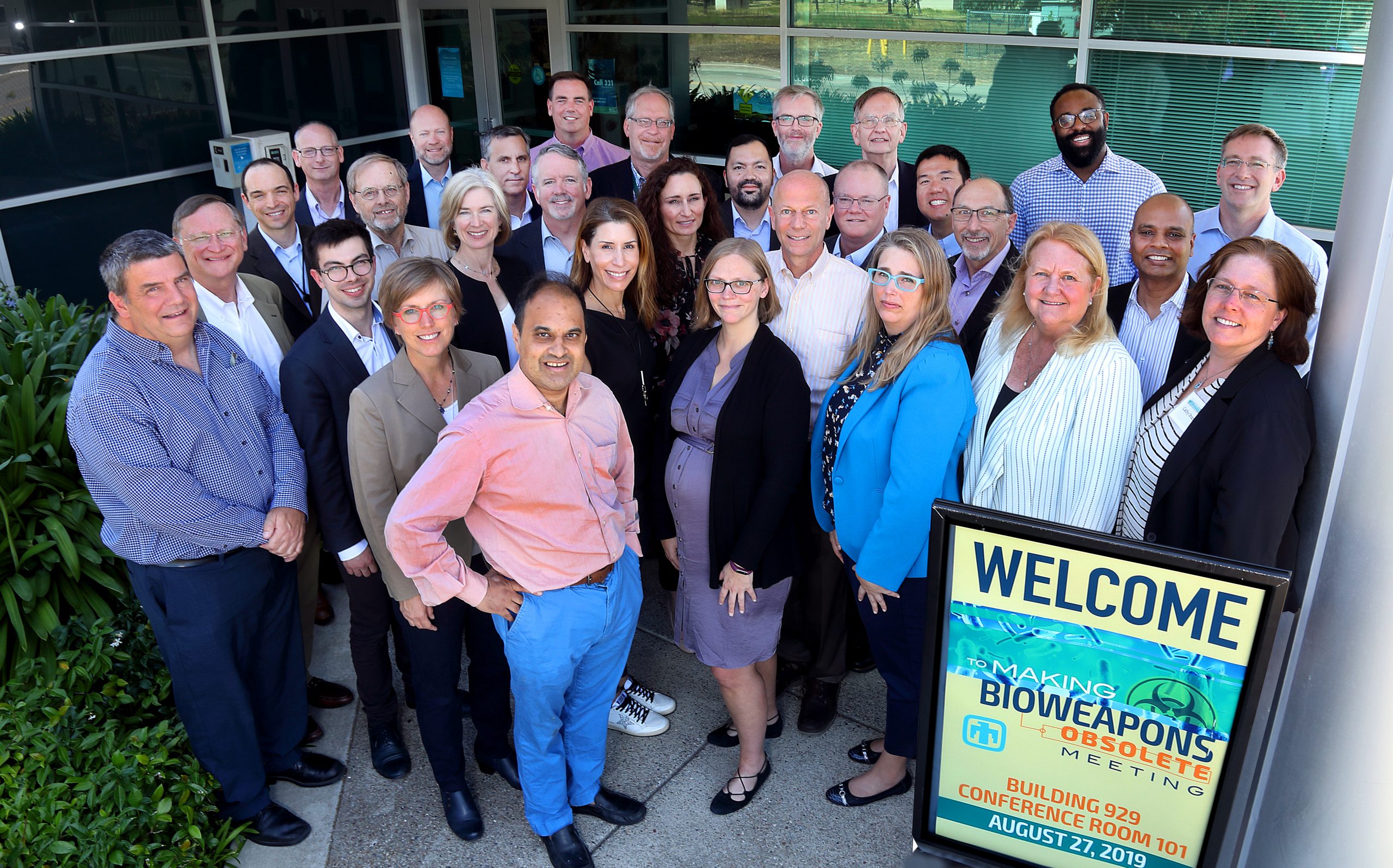LIVERMORE, Calif. — As the threats posed by bioterrorism and naturally occurring infectious disease grow and evolve in the modern era, there is a rising potential for broad negative impacts on human health, economic stability and global security. To protect the nation from these dangers, Sandia National Laboratories has partnered with the Council on Strategic Risks in taking on the ambitious goal of making bioweapons obsolete.

In a report released this week, “Making Bioweapons Obsolete: A Summary of Workshop Discussions,” Sandia and the council outline the discussion and recommendations that came out of the Making Bioweapons Obsolete workshop hosted at Sandia. The one-day meeting brought together government, national laboratories, academia, industry, policy and entrepreneur communities to address the challenges of mitigating and eliminating the risks bioweapons present. The workshop was the first in a planned series.
The report captures the strategic vision the working group laid out for achieving this ambitious goal more effectively and rapidly. According to Anup Singh, director of Biological and Engineering Sciences at Sandia, addressing the rising threats bioweapons present across the U.S. and around the world will require using strategy, technology advances, policy and other tools.
“This is an extremely interesting time in biotechnology with the revolutionary advances in genome editing, synthetic biology and convergent technologies such as artificial intelligence and robotics,” Singh said. “Academia and the private sector are driving a variety of biotechnology innovations and it is imperative that we engage them in solving the problem together with the traditional national security partners.”
Drawing on the cross-discipline expertise of the working group, organizers aim to better understand the threat and how technology can both increase and mitigate the risk. The report focuses on identifying solutions that offer the biggest return and influencing national leadership to provide attention and resources to the issue and engage with academia and industry.
“We need a moonshot-level, inspirational goal regarding biological threats,” said Andy Weber, senior fellow at the council. “When we convene top experts to explore the concept of making bioweapons obsolete, we are usually met with great enthusiasm and a feeling that the United States can really achieve this vision. Indeed, it is largely an expansion on the work the U.S. government has accomplished to date in addressing smallpox threats to America with an extensive vaccine stockpiling system and its development of vaccines for viruses such as Ebola.”
The report highlights a wide range of considerations that must be addressed. The report:
- Provides insights on key technological trends.
- Raises questions of the data and information access required for rapidly characterizing and responding to biological attacks and outbreaks.
- Explores market and supply chain dynamics in depth.
- Points to significant U.S. government capacities that can be used and expanded, including its vast testing and evaluation infrastructure.
- Highlights the need for coordinated outreach and education to policymakers, in particular by academic and private sector experts.
- Drives home the critical importance of U.S. leadership.
The workshop is the beginning of an important conversation in tackling the ambitious issue of eliminating or significantly reducing biothreats, explained Andy McIlroy, associate laboratory director of Integrated Security Solutions at Sandia.
“With increased commitment, time, resources and leadership, we can make further strides in meeting this bold target,” McIlroy said. “I hope that we can continue this discussion to create a united, national vision that meets the urgency of the moment.”
Future workshops will continue the wide-ranging discussion focused on engaging in a national dialogue and promoting better public-private collaboration in this grand mission. Sessions will focus on man-made threats from weapons of mass destruction, as well as the risks posed by advances in technology.
The Council on Strategic Risks is a nonprofit, nonpartisan security policy institute devoted to anticipating, analyzing and addressing core systemic risks to security in the 21st century, with special examination of the ways in which these risks intersect and exacerbate one another. For more on council’s program on making bioweapons obsolete visit the Janne E. Nolan Center on Strategic Weapons.

